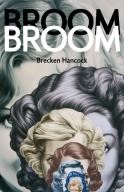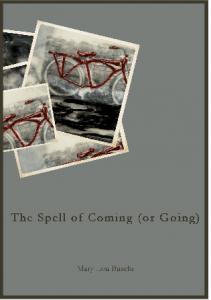72 pages, $17.95
48 pages, $10.80
Review by Adam Sol
Grief is one of our first reasons for inventing poetry: the urge to inscribe a loss that cannot be recovered. Gilgamesh’s Enkidu, Homer’s Achilles, Jeremiah’s Jerusalem, Shelley’s Keats, Ginsberg’s mother, Olds’ father, Mary Jo Bang’s son – all have been memorably recorded and mourned in verse.
But your loss is not necessarily my loss. The hard part about writing from grief is that most of a poet’s readers will not know or care about the poet’s mother or brother or son or city the way the poet does. And so, if the poet is to draw successfully on our emotions, something of that loss must be transferred, rather than merely reported, to us.
Two recent debut collections of poetry attempt to convey, through emotional perception or linguistic flair, a sense of the mind struggling to cope with devastating loss. The Spell of Coming (or Going) revolves around the tragic death of the poet’s brother. Although the specifics are not described in any detail, Buschi at her best can evoke the complex emotional landscapes that make families unique and fascinating as they confront suffering. In “Clocks,” a grieving father spends his time “bent over his box of stopped watches.” “When the Wreck Has Been” describes the strange, sad horror of dispersing the ashes of a loved one: “It’s your body I toss from my hand, / wipe on my trousers, you who I chased // down streets as a child, always just beyond my reach.” These moments evoke the tragedy that haunts and compels The Spell of Coming (or Going). Continue reading
![[PANK]](http://pankmagazine.com/wp-content/themes/pank/assets/images/pank-logo-large.png)


